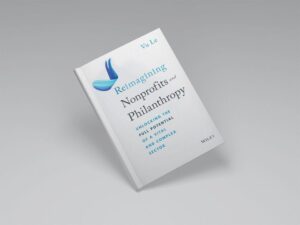July 25, 2016; Argus Leader (Sioux Falls, SD)
Last October, NPQ wrote about the indictment of the executive director of a small nonprofit for embezzlement. Last week, after a months-long negotiation, a plea bargain was agreed to and Aaron Wimmer was sentenced to 180 days in jail, with a ten-year sentence suspended and a $20,000 fine that may also be suspended based on Wimmer’s future conduct.
While he served as executive director, Wimmer embezzled more than $45,000 over several years from the Family Visitation Center in Sioux Falls, South Dakota. The organization has a total annual budget of about $600,000. The embezzled funds were used to pay Wimmer’s personal expenses, with payments made by Wimmer to “automotive shops, restaurants, and utility companies,” according to the news story.
Wimmer’s crime was mitigated by at least two key factors—confession and restitution. Wimmer came forward immediately when discrepancies were found in the nonprofit’s accounts, resigned his position, and worked with auditors and law enforcement to document the thefts. He also secured loans from family members to make restitution to the Family Visitation Center.
Sign up for our free newsletters
Subscribe to NPQ's newsletters to have our top stories delivered directly to your inbox.
By signing up, you agree to our privacy policy and terms of use, and to receive messages from NPQ and our partners.
The plea agreement calls for Wimmer to serve 180 days in jail, but that sentence will be carried out in a work release environment, where he will be incarcerated in a local minimum-security facility when not working in the community. The sentencing judge also imposed a $20,000 fine, but will waive payment of the fine if Wimmer can demonstrate that the loans from family members have been repaid.
There was no evidence that any other FVC employees were aware of Wimmer’s activities. Because Wimmer actively deceived staff, auditors, and board members, routine nonprofit due diligence wasn’t enough to stop Wimmer’s thefts. In other words, even reasonably good security can’t stop all crime when the crime is an “inside job” and the individual is trusted to abide by the rules.
This story also illustrates the seldom-recognized fact that misdeeds at even the smallest nonprofits can result in criminal penalties. Whether Wimmer’s sentence was too harsh, too lenient, or appropriate, there is no doubt that the publicity and the need to include his family in the legal restitution process carry with them additional long-term punishments.—Michael Wyland
Disclosure: FVC is a longtime client of Sumption & Wyland.











